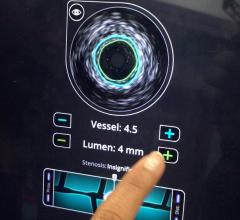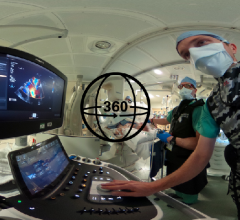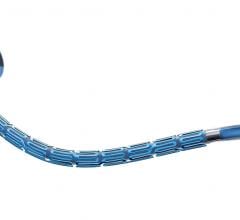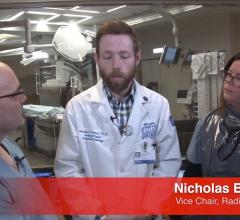October 2, 2019 – The Abbott Portico FDA investigational device exemption (IDE) study found that 30-day safety and one ...
October 2, 2019 — Democratic presidential candidate Sen. Bernie Sanders (D-VT) was hospitalized with chest pain on Oct ...
October 2, 2019 — Philips Healthcare is utilizing Level Ex’s video game app design expertise to train interventional ...
Providing exceptional cardiovascular care for patients to achieve the best possible outcomes is the number one goal for ...
This 360 degree view shows staff at the University of Colorado Heart and Vascular Center performing live transesophageal ...
I recently had the opportunity to conduct an onsite visit to the University of Colorado Hospital Heart and Vascular ...

October 1, 2019 — Here is the list of the most popular content on the Diagnostic and Interventional Cardiology (DAIC) ...
Cardiac positron emission tomography (PET) is growing in popularity among cardiologists because it provides the ability ...

Henry Ford Hospital thought leaders regularly speak at the cardiology conferences about new research and technology ...
Marvin Eng, M.D., structural fellowship director at Henry Ford Health System, and William O'Neill, M.D., director of the ...
The first randomized trial to compare a durable polymer drug- eluting stent to a polymer-free drug-coated stent in patients at high risk of bleeding and treated with one-month dual antiplatelet therapy (DAPT) found that both are clinically safe and effective.
When performing radiofrequency (RF) ablation to treat cardiac arrhythmia, medical professionals must balance the safety ...
A biodegradable polymer everolimus-eluting stent (BP-EES) followed by four months of dual antiplatelet therapy (DAPT) is safe and effective in patients undergoing percutaneous coronary intervention (PCI) for unprotected left main coronary artery (uLMCA) disease. These findings are courtesy of the IDEAL-LM trial, which compared BP-EES plus four months of DAPT to a conventional durable polymer everolimus-eluting stent (DP-EES) followed by 12 months of DAPT.
A discussion with William O’Neill, M.D., director of the Henry Ford structural heart program, Ruth Fisher, MBA, vice ...
Data from the EVOLVE Short DAPT study found that shortened three-month dual antiplatelet therapy (DAPT) did not increase myocardial infarction (MI) or stent thrombosis (ST) in high bleeding risk (HBR) patients treated with a contemporary drug-eluting stent.
Change Healthcare Cardiology Hemodynamics is an integrated hemodynamic monitoring system for monitoring vital signs and ...
A discussion with Ruth Fisher, MBA, vice president of the Henry Ford Hospital structural heart program, and Janet Wyman ...
A discussion with Nicolas Bevins, Ph.D., vice chair, physics and research, and Jessica Harrington, RCIS. They explain ...
A discussion with Khaldoon Alaswad, M.D., director, cardiac catheterization lab, Henry Ford Hospital, on treating ...


 October 02, 2019
October 02, 2019















